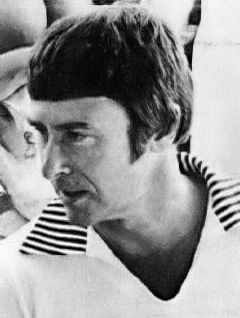A Quote by Buzz Aldrin
I came to dedicate my life to opening space to the average person and crafting designs for new spaceships that could take us far from home. But since Apollo ended, such travels were only in our collective memory.
Related Quotes
The average person's short-term memory can hold only five to seven bits of data at any one moment. If you put more items in, others fall out. The older you are, the more you have crammed into those memory circuits. Twenty-five-year-olds can remember things because they still have empty space. Some of us take our children to the supermarket in the hope they will remember why we are there.
We travel because, no matter how comfortable we are at home, there's a part of us that wants - that needs - to see new vistas, take new tours, obtain new entrees, introduce new bacteria into our intestinal tracts, learn new words for "transfusion," and have all the other travel adventures that make us want to French-kiss our doormats when we finally get home.
By opening space, for the first time in our history, rather than inexorably extracting the blood of life from this oh-so-precious sphere in our quest for wealth, we will turn outwards and upwards, creating new wealth from places already dead, advancing into places where there is no life, and bringing its seeds with us.
I feel a disparity between my life in India within the home and my life outside the home - my life within public and private space. In terms of here and there, there were some differences, but New York and India were very different when I was growing up in the '80s. Definitely in terms of the visual and popular culture I encountered within my home - that was very different from the complete lack of representation I saw of South Asian culture outside of that space.
The first arrival of earthly life on another celestial body ranks as an epochal event not only for our generation, but in the history of our planet. Neil Armstrong was at the cusp of the Apollo programme. This was a collective technological effort of epic scale, but his is the one name sure to be remembered centuries hence.

































